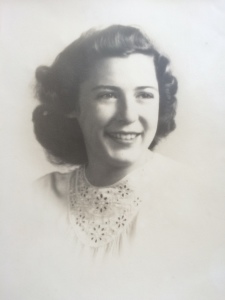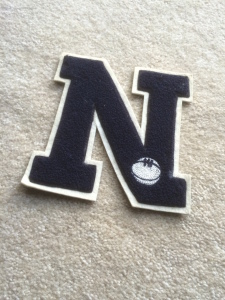As a university psychologist, I heard many students describe their mothers as their “best friend.” My mother was not my best friend. In my book, mothers, fathers, and spouses constitute a whole different category. They are not best friends.
I told my secrets, my stories, my dreams to my best friends. I withheld lots of things from my mother. Sometimes I lied to her. I shared jokes and belly laughs with my best friends. I pouted and whined for my mother. I couldn’t wait for evenings or whole days I spent with my best friends. I begrudged my mother the time she made me do my homework and practice the piano. I relished eating at the houses of my best friends. I took my mother’s meals for granted.
 No, my mother was not my best friend. I needed her to be someone much more important.
No, my mother was not my best friend. I needed her to be someone much more important.
I needed her to have breakfast ready for us each morning. I never wondered if it would be there. In fact, I never really thought about it. It was simply part of the each morning’s routine. She never bragged about or complained about frying a dozen eggs and a pound of bacon each morning. I needed her to have a sack lunch ready to grab on my way out the door. Despite the fact that she prepared four sack lunches for elementary school boys each day, I never doubted that mine would be the one with mustard instead of mayonnaise.
I needed her to show up for teacher’s conferences, little league games, and piano recitals. I needed her to check that my homework was done, even when I complained about it.
I needed to hear “the voice” from the kitchen when it became clear to her that our fun was escalating to an all-out fight. I needed to hear “the other voice” when she and I both knew I had not done my best. The disappointment in that voice humbled me to better efforts. I needed “the look” when it would have embarrassed me to get “the voice” in public. I needed “the other look” when I did well, when she was proud of me. It was all I needed to replicate the effort.
I needed her to encourage my study, my art, my writing, my piano, my baseball. I didn’t lack talent, motivation or energy. I lacked confidence and she knew it. So she provided the encouragement until I gained the confidence to continue on my own. Without that, I would have quit lots of things. I would never have discovered some of the talents and capabilities that define my life now.
In short, I needed her to hold tight to the reins of a family that could easily have run out of control. With four rambunctious boys, a fifth one that came along later, and a husband who was perpetually busy with his work as a minister, it was up to Mother to keep the world spinning at a constant rate and on its proper axis.
Her name was Constance. She was named for a virtue. Everyone called her Connie, except her five sons. Constance: steadiness, dependable, consistent, faithful, one of those virtues that is recognized mostly in its absence. It was easy to take her steady hand on our lives for granted. Consistency is easy to ignore until it’s not there.
 On a trip to visit my Dad last week, I went through some boxes in the basement. I found, among other things, mother’s four high school letters for playing basketball. I showed them to my Dad, and he said he had never seen them before.
On a trip to visit my Dad last week, I went through some boxes in the basement. I found, among other things, mother’s four high school letters for playing basketball. I showed them to my Dad, and he said he had never seen them before.
Mom rarely talked about the life she had before she was a mother. She never bragged about her high school athletics or numerous other activities. She trained in opera. She had a beautiful soprano voice. My father told me she got rid of the operatic vibrato in her voice so she could sing solos for the rural churches he pastored. He seemed proud of her for that. Hearing that made me sad.
She had a childhood. She was a teenager. She was a college student. She had talents and dreams. Anyone would have been lucky to have her as a best friend. But she was not my best friend, and I’m glad of that. Her role as mother was so much more important to me.
0 Comments until now
Add your Comment!